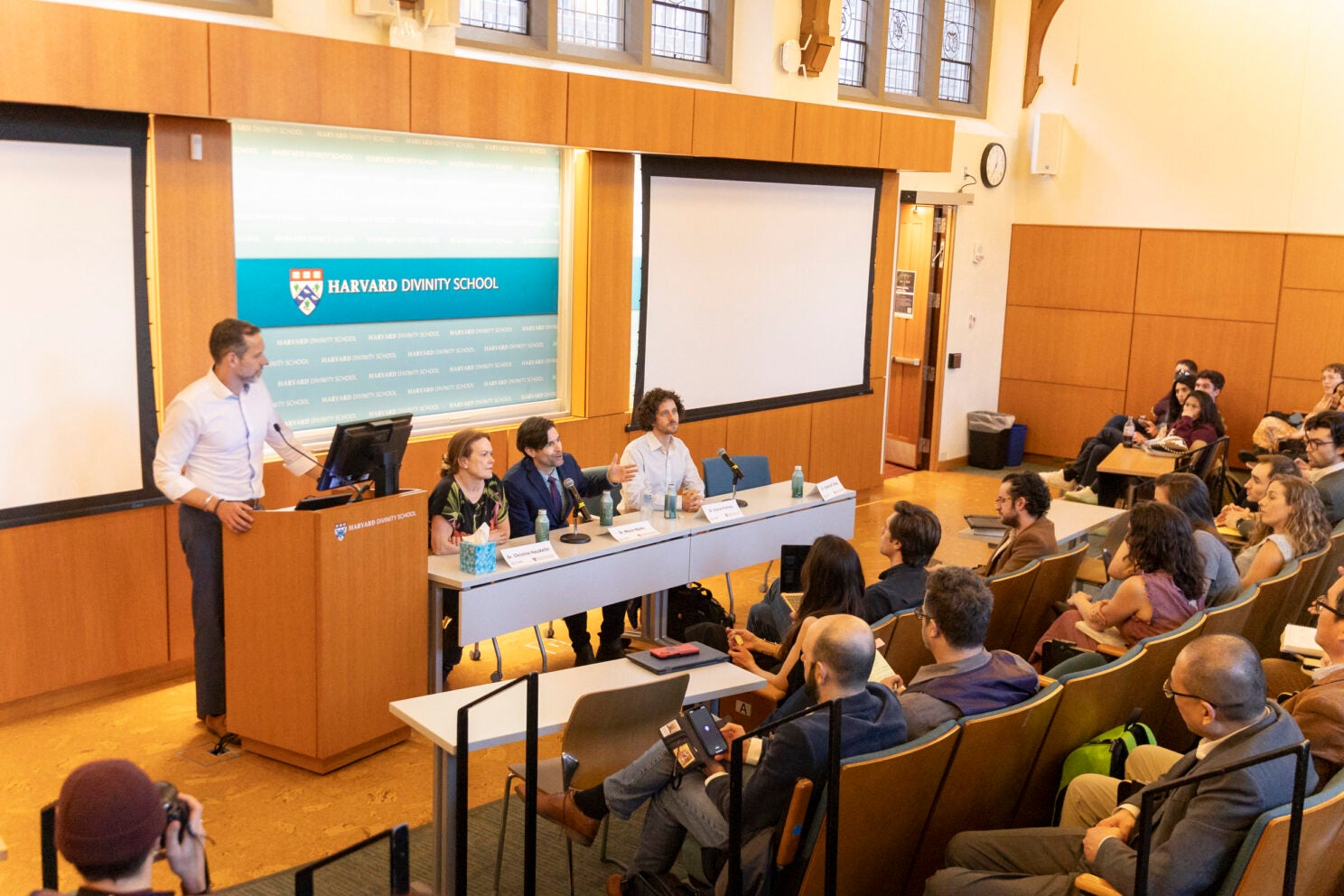Health
Earlier warning on pediatric cancer recurrence
AI tool does a better job predicting relapse risk than traditional methods in Harvard study
An AI tool trained to analyze multiple brain scans over time predicted risk of relapse in pediatric cancer patients with far greater accuracy than traditional approaches, according to a new study. Researchers hope the results lead to improved care for children with brain tumors called gliomas, which are typically treatable but vary in risk of recurrence.
“Many pediatric gliomas are curable with surgery alone, but when relapses occur, they can be devastating,” said corresponding author Benjamin Kann of the Artificial Intelligence in Medicine Program at Mass General Brigham and the Department of Radiation Oncology at Brigham and Women’s Hospital. “It is very difficult to predict who may be at risk of recurrence, so patients undergo frequent follow-up with magnetic resonance imaging for many years, a process that can be stressful and burdensome for children and families. We need better tools to identify early which patients are at the highest risk of recurrence.” Kann is also Assistant Professor of Radiation Oncology at Harvard Medical School.
The results of the study by investigators from Mass General Brigham and collaborators at Boston Children’s Hospital and Dana-Farber/Boston Children’s Cancer and Blood Disorders Center were published in The New England Journal of Medicine AI.
The research, which was funded in part by the National Institutes of Health, leveraged institutional partnerships across the country to collect nearly 4,000 MR scans from 715 pediatric patients. To maximize what AI could “learn” from a patient’s brain scans — and more accurately predict recurrence — the researchers employed a technique called temporal learning, which trains the model to synthesize findings from multiple brain scans taken over the course of several months post-surgery.
“Many pediatric gliomas are curable with surgery alone, but when relapses occur, they can be devastating.”
Benjamin Kann
Typically, AI models for medical imaging are trained to draw conclusions from single scans; with temporal learning, which has not been used previously for medical imaging AI research, images acquired over time inform the algorithm’s prediction of cancer recurrence. To develop the temporal learning model, the researchers first trained the model to sequence a patient’s post-surgery MR scans in chronological order so the model could learn to recognize subtle changes. From there, the researchers fine-tuned the model to correctly associate changes with subsequent cancer recurrence, where appropriate.
Ultimately, the researchers found that the temporal learning model predicted recurrence of either low- or high-grade glioma by one year post-treatment, with an accuracy of 75-89 percent — substantially better than the accuracy associated with predictions based on single images, which they found to be roughly 50 percent (no better than chance). Providing the AI with images from more timepoints post-treatment increased the model’s prediction accuracy, but only four to six images were required before this improvement plateaued.
The researchers caution that further validation across additional settings is necessary prior to clinical application. Ultimately, they hope to launch clinical trials to see if AI-informed risk predictions can result in improvements to care — whether by reducing imaging frequency for the lowest-risk patients or by pre-emptively treating high-risk patients with targeted adjuvant therapies.
“We have shown that AI is capable of effectively analyzing and making predictions from multiple images, not just single scans,” said first author Divyanshu Tak of the AIM Program at Mass General Brigham and the Department of Radiation Oncology at the Brigham. “This technique may be applied in many settings where patients get serial, longitudinal imaging, and we’re excited to see what this project will inspire.”
This study was supported in part by the National Institutes of Health/the National Cancer Institute.














